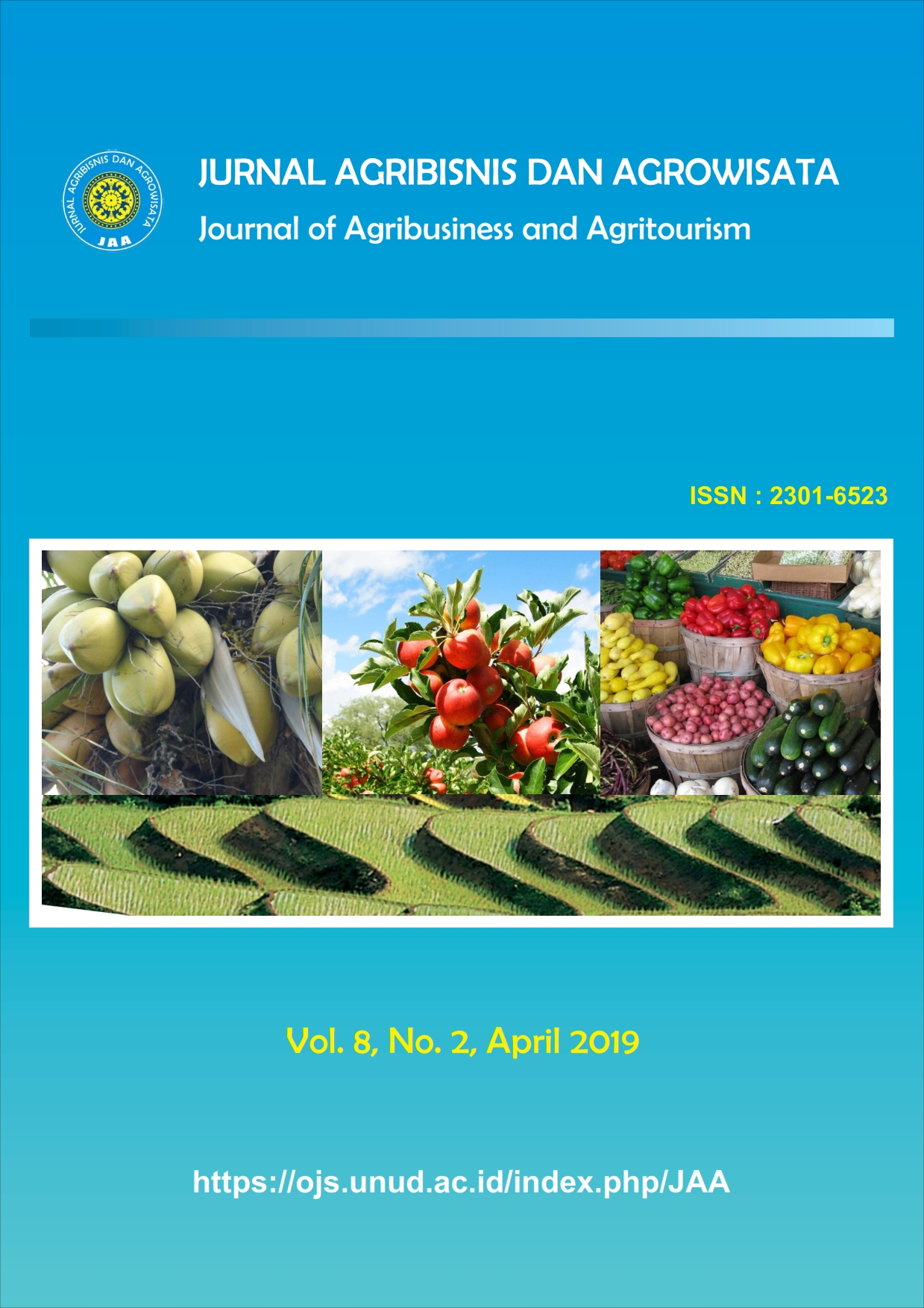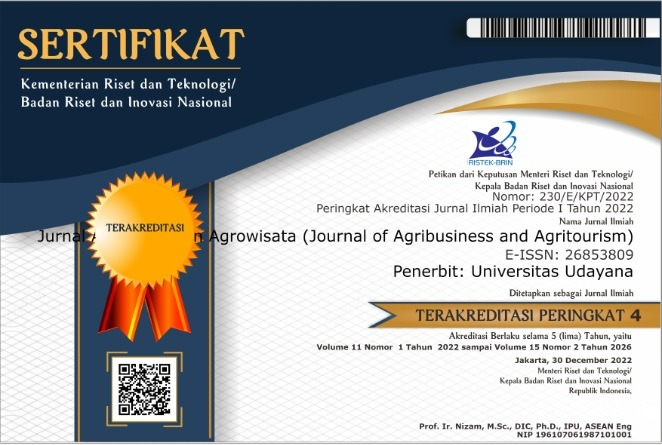The Contribution Made by the Employed Housewives Living at Agricultural and Non-agricultural Villages to Their Family Income (A Case Study Conducted at Beraban Village, Kediri District and Wongaya Gede Village, Penebel District, Tabanan Regency)
Abstract
The Contribution Made by the Employed Housewives Living at Agricultural and
Non-agricultural Villages to Their Family Income
(A Case Study Conducted at Beraban Village, Kediri District and Wongaya Gede
Village, Penebel District, Tabanan Regency)
The faster economic growth leads to multiple effect and inspires different economic
activities which can absorb and cause housewives to have access to job opportunities.
However, the job opportunities available at the agricultural village are different from
those available at the non-agricultural village. As a consequence, the contribution made
by the housewives living at the agricultural village to the family income is different
from that made by those living in the non-agricultural village. This current study was
intended to (1) identify the extent to which the housewives living at the agricultural
village and non-agricultural village can contribute to the family income; (2) what
motivated the housewives to work; and (3) what obstructed the housewives in their
employment. This present study was conducted from July to August 2017 at Beraban
Village, Kediri District, and at Wongaya Gede Village, Penebel District. The samples
were taken using the Multistage Random Sampling, and totaled 77. The data were
analyzed using the quantitative descriptive analysis, different test, and descriptive
qualitative analysis. The result of the study shows that (1) the contribution made by the
housewives living at the non-agricultural village was smaller than that made by those
living at the agricultural village; (2) spare time inspired most of the housewives living at
the non-agricultural village to work; (3) the household chores such as looking after their
houses, taking care of their children, and the family members who were sick, and so
forth obstructed them in their employment. Therefore, it is suggested to the housewives
both living at the agricultural village and non-agricultural village to collaborate with the
related institutions as an attempt to improve their productivity and efficiency in
organizing their time.







